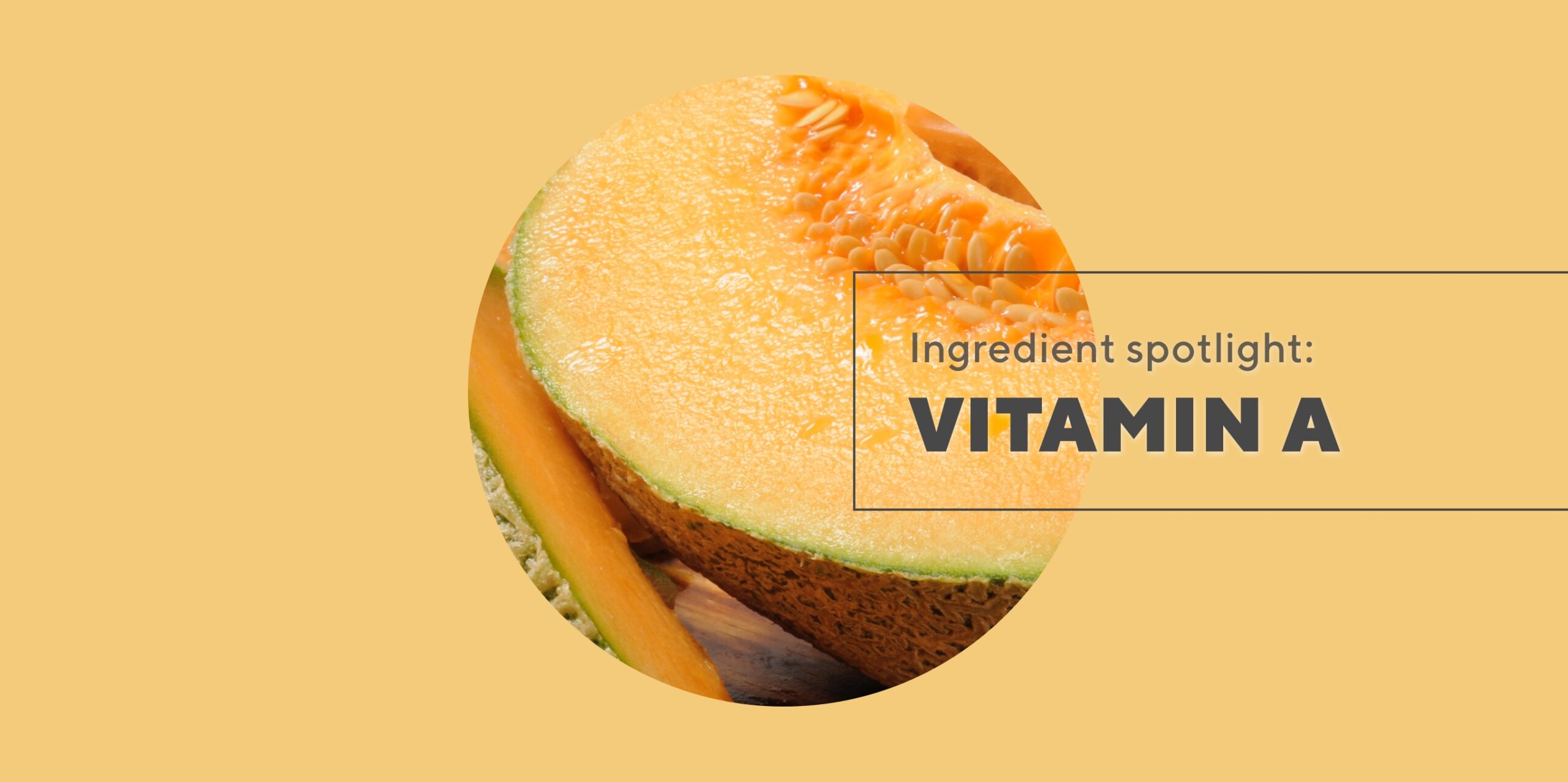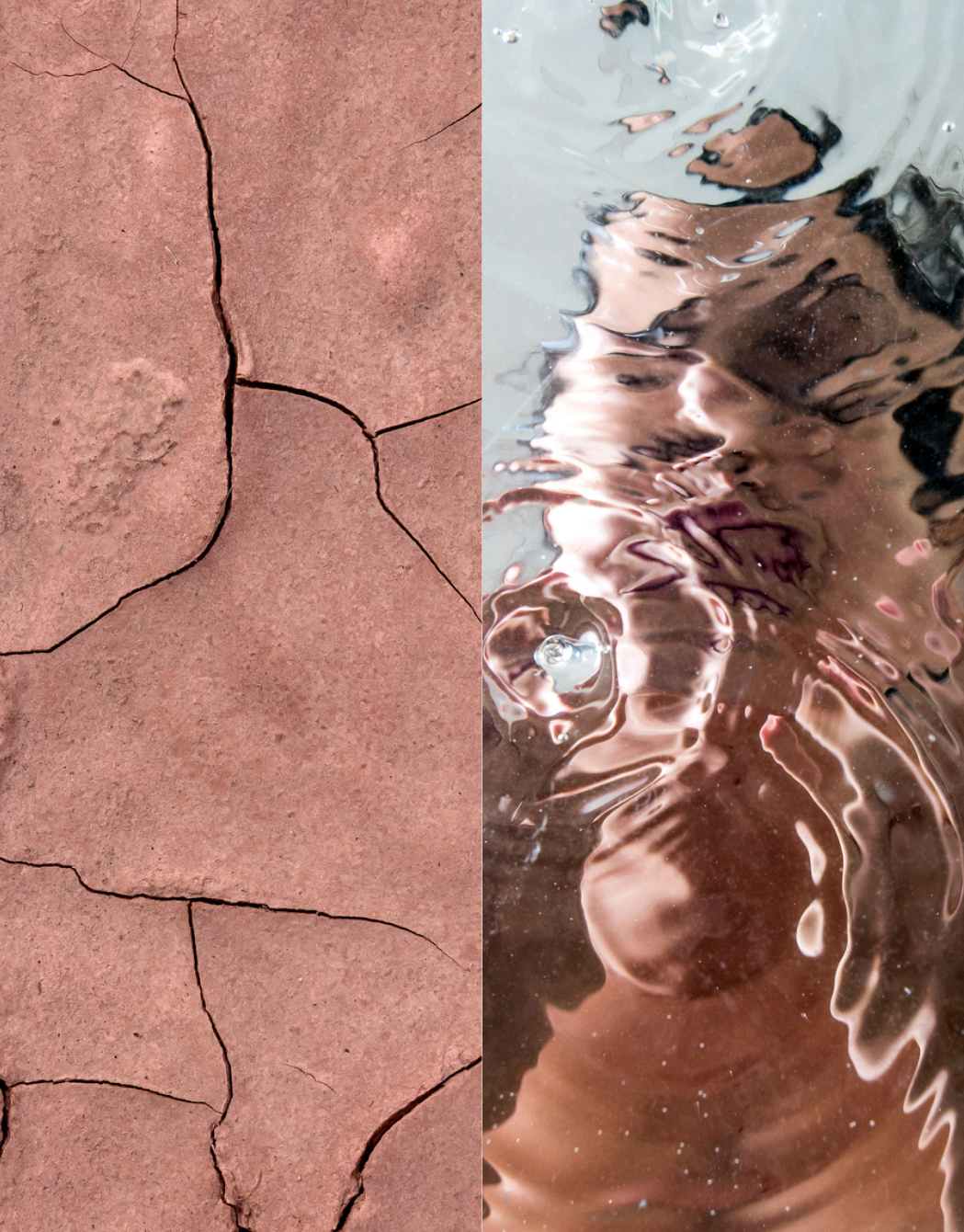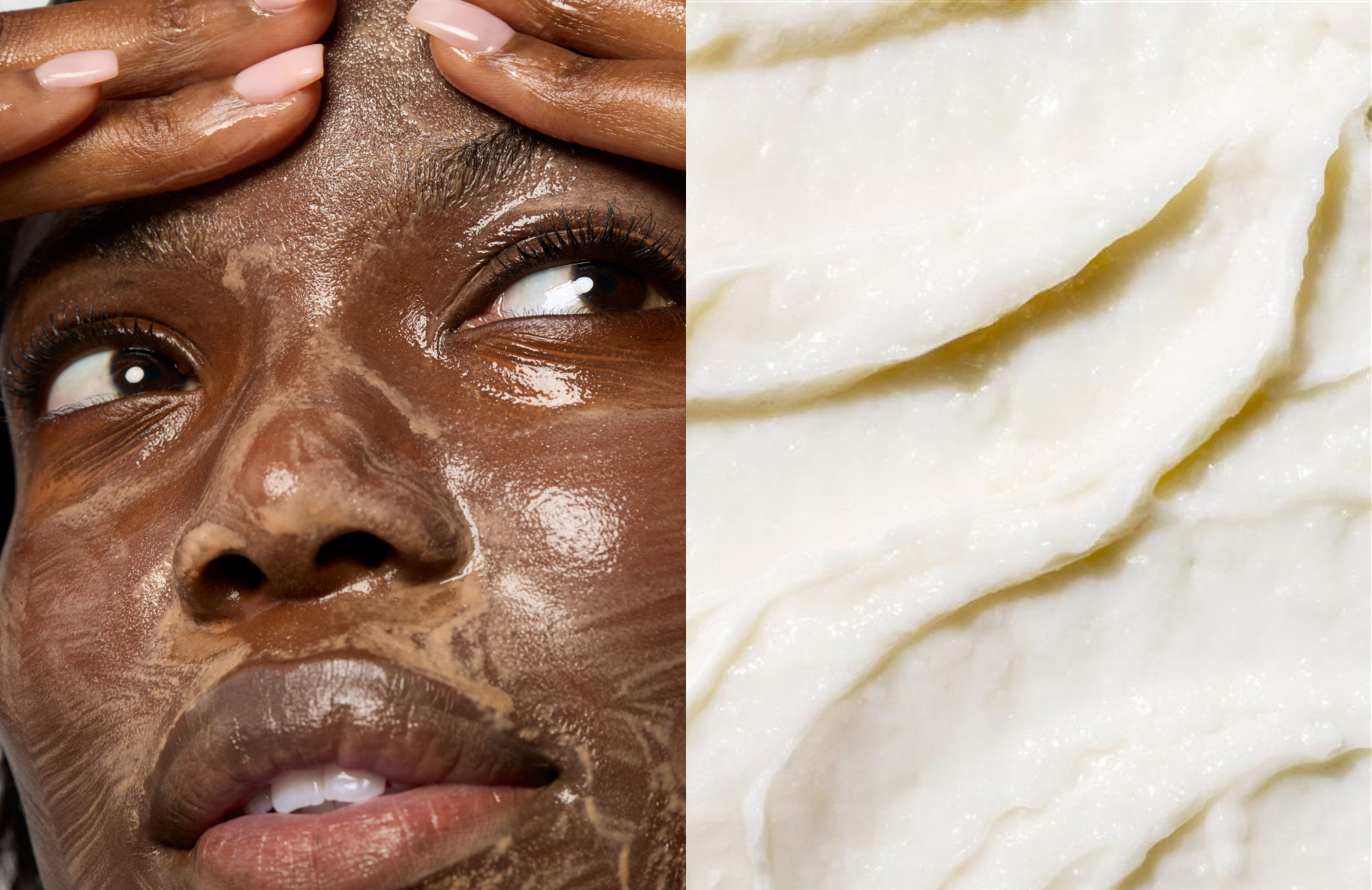Ingestible skincare ingredient: Vitamin A—the top 4 reasons why it’s a skin-saving superpower

Vitamin A derivatives like retinol can have a transformative effect on skin’s appearance from the outside in—but fueling the body with vitamin A in supplement form may help rebuild skin from the inside out. Here, we examine vitamin A’s benefits for the skin by way of skincare supplements as an inside-out approach to caring for the long-term health of our skin.
What is vitamin A?
Vitamin A, also known as retinol or retinoids, is an essential group of molecules woven into our biological makeup. Vitamin A also plays a pivotal role in the integumentary system—the system of the body that encompasses our hair, nails, sweat and oil glands, and the body’s largest organ: our skin.
How does vitamin A work?
Vitamin A can be consumed through food sources or as an oral supplement. There are two main types of vitamin A that can be ingested through dietary sources or in pill form:
- Preformed vitamin A: Also known as retinol or retinyl esters
- Provitamin A carotenoids: Including beta-carotene, alpha-carotene and beta-cryptoxanthin
Different systems of the body require particular strains of vitamin A to support their activities. To make vitamin A bioavailable for our skin, our liver converts it into retinoic acid (RA).
In the form of retinoic acid, vitamin A works directly with our genes to modify a specific set of cellular functions in two areas:
- The epidermis (the outermost layer of our skin): The epidermis works as a permeable barrier against the external environment—one of the most critical components of the overall immune system
- The dermis (or the deeper layers of our skin): The dermis is latticed with circulatory networks, fatty tissues, immune cells and a collagen matrix—the structure that lends skin its buoyancy, elasticity and healthy appearance
Vitamin A enhances the cellular processes continually taking place in both the superficial and underlying strata of our skin, and that makes it a dynamic skin-nurturing nutrient with actions that are both surface-level and far more than skin-deep.
The top 4 benefits of vitamin A for skin.
Not only does vitamin A furnish our skin’s outermost and deepest layers, but it also prevents the visible tolls oxidative stress takes on the skin—especially when taken with other supplements like vitamin E.
As one of the primary building blocks of healthy skin, vitamin A is also one of the most powerful substances in play during the wound healing process as it assists with:
- Stimulating the growth of new skin cells
- Aiding in collagen synthesis, the process which ultimately makes for skin’s elasticity
- Repairing and regenerating blood vessels within the skin
Studies show that vitamin A deficiencies lead to poorer immune responses in the skin, as well as higher levels of inflammation. Boosting our vitamin A intake may strengthen our immune response and improve its ability to handle the myriad chemicals, pollutants and environmental stressors our skin comes in contact with on a daily basis.
Hormones play a significant role in the appearance of acne throughout our lives, whether as a result of chronic stress or a part of pre-menopause.
Acne and blemishes are a result of inflammation: an overreactive response to an infection that takes root within the skin. While acne products can assist in clearer skin, vitamin A supplements are more of an inside out approach. As a nutrient that regulates immune response, taking a vitamin A supplement may help to pare down inflammatory responses and may help to foster clearer-looking skin with a more even texture.
Oxidative stress is suspected to be one of the primary culprits to blame for catalyzing premature skin aging. In the mirror, this may show up as:
- Slackness
- Fine lines and wrinkles
- Hyperpigmentation
- Dull or lifeless-looking skin
As a potent antioxidant, vitamin A supplies our bodies with the stable molecules it needs to reign in free radicals and temper the brunt oxidative stress bears on our skin. Adding a vitamin A supplement to our skin routine may be the skeleton key that unlocks the rest of the products in our skincare regimen, paving the way towards that resilient, youthful vibrancy we associate with healthy, beautiful skin.
The views expressed in this article do not necessarily represent the views of Murad, and are for informational purposes only, even if the advice of physicians and medical practitioners are included. This article is not a substitute for professional medical advice, diagnosis or treatment, and should not be considered specific medical advice.
References for this information:
Oregon State University Website, Micronutrient Information Center
National Library of Medicine Website, Medical Encyclopedia
National Institutes of Health Website, Dietary Supplements Fact Sheets
Institute of Medicine (US) Panel on Micronutrients, 2001
Immunology, 2020, volume 160, issue 2, pages 116-125
International Journal of Biomedical Science, 2008, volume 4, issue 2, page 89-96
Mayo Clinic Website, Drugs & Supplements A-Z
Nutrition in Clinical Practice, 2019, volume 34, issue 6, pages 839-849
Nutrients, 2021, volume 13, issue 2, page 302
Cleveland Clinic, Diseases & Conditions
National Institute of Arthritis and Musculoskeletal and Skin Diseases, Health Topics
Science Direct Website, Skin Aging and Oxidative Stress
Asian Pacific Journal of Cancer Prevention, 2014, volume 15, issue 2, pages 561-568
More about skincare ingredients as ingestibles here:
Ingestible skincare ingredient: Glutathione—is it a shady skin lightener or misunderstood skincare superstar for hyperpigmentation and fine lines?
Ingestible skincare ingredient: Phytoceramides—are they a ‘facelift in a bottle’ and the secret to radiant, firmer skin from the inside out?
Ingestible skincare ingredient: Vitamin E—from being the ultimate antioxidant to protecting against inflammation
Ingestible skincare ingredient: Burdock root—the natural solution for everything from digestion to a clearer complexion?
Ingestible skincare ingredient: Grapeseed oil—the only ingredient you need on your supplement shelf for radiant, even skin?


